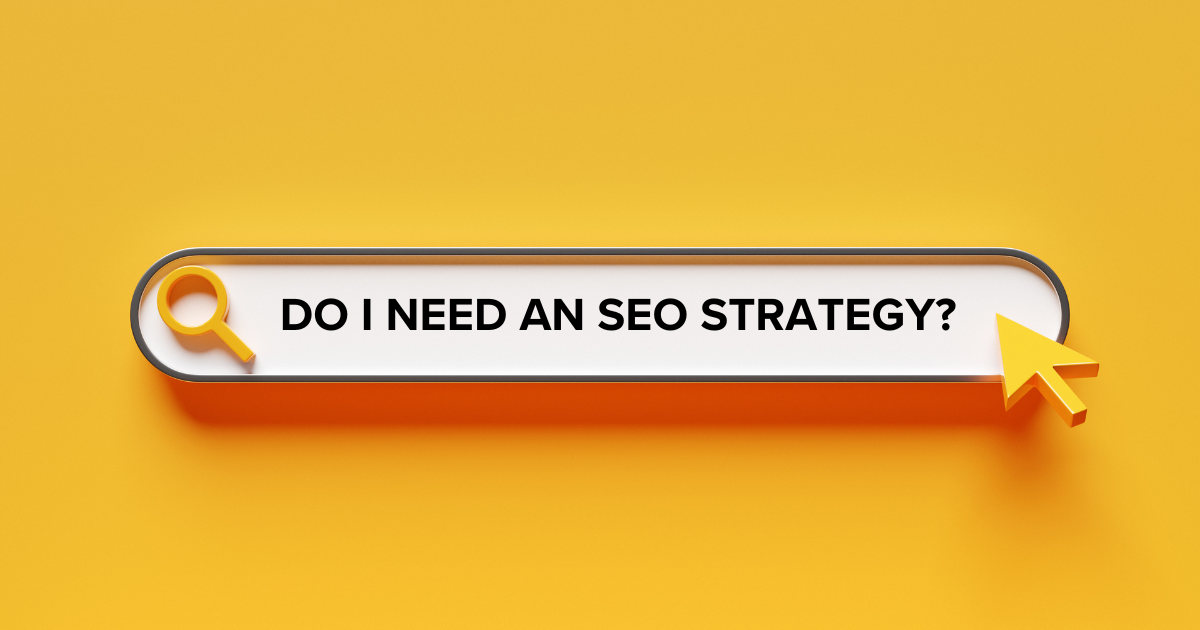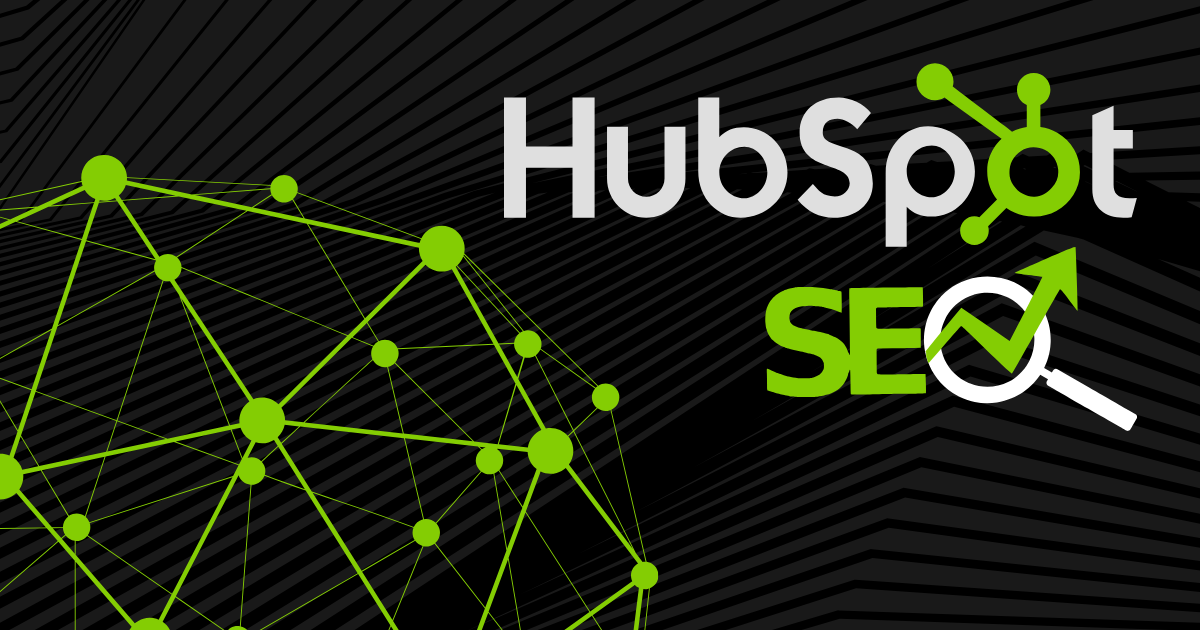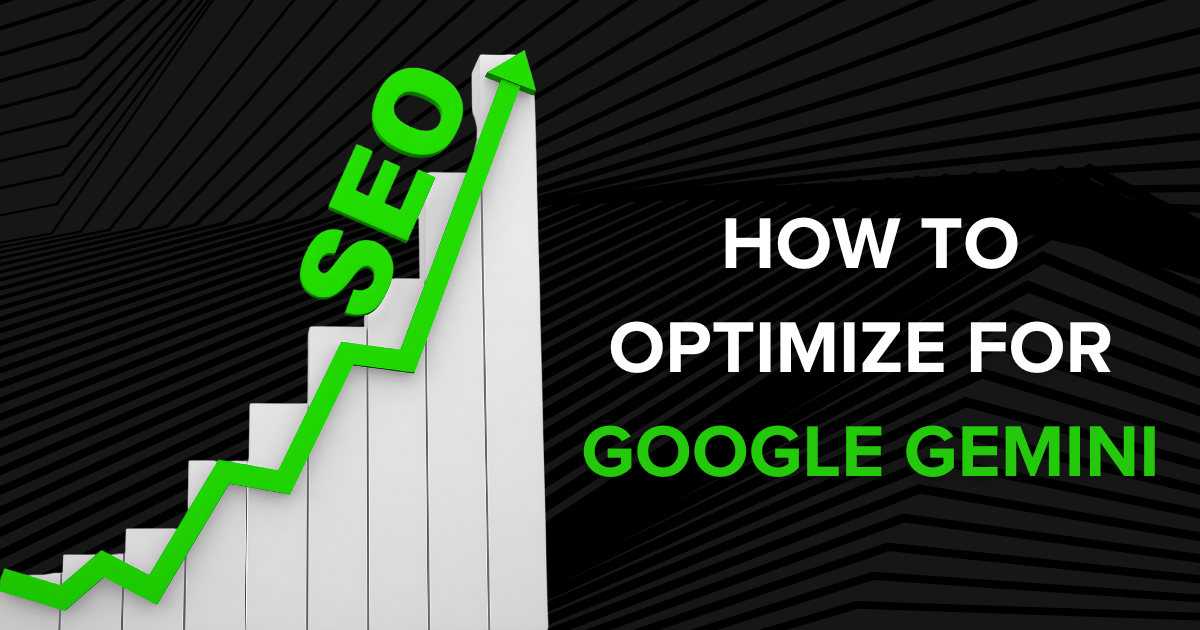The Ultimate List of Subject Line Spam Triggers
If your open rates are dropping and your emails are quietly slipping into spam folders, you’re not alone. Even marketers with well-segmented lists...

Listen and Learn On The Go
In the ever-evolving digital landscape, the question isn't whether your business needs SEO but how to implement a strategy that drives real results. As Google’s algorithms become more sophisticated, and with the rise of AI-driven tools like Google Gemini, having a solid SEO strategy is more crucial than ever. But do you really need SEO? Let’s break it down.
If your goal is to increase online visibility, attract targeted traffic, and grow your business, then the answer is a resounding yes. SEO isn’t just about getting to the top of Google’s search results—it’s about making sure your business is seen by the right people at the right time. Without a well-thought-out SEO strategy, your website is like a billboard in the middle of the desert. Sure, it exists, but who’s going to see it?
SEO helps you connect with potential customers who are actively searching for the products or services you offer. It’s about being there when they need you most, offering solutions, and building trust. Whether you're a small local business or an international brand, SEO is the key to unlocking your digital potential.
SEO starts with content—good content. But it’s not just about throwing words on a page; it’s about crafting content that resonates with your audience and satisfies search engines. This means focusing on relevant topics, using keywords wisely, and structuring your content in a way that’s easy for both users and search engines to navigate.
Consider the user’s journey: What questions are they asking? What problems are they trying to solve? Your content should provide answers and solutions while naturally incorporating keywords that align with your audience’s search intent. Don’t forget about meta descriptions, headers, and internal linking—they all play a crucial role in how your content is indexed and ranked by search engines.
While great content is the foundation of SEO, technical SEO is the backbone. This involves ensuring that your website is healthy and running smoothly behind the scenes. Think of it like maintaining a car—you wouldn’t drive around with a faulty engine, so why would you let your website run with broken links or slow load times?
Technical SEO includes monitoring site health, managing backlinks, disavowing toxic links, and ensuring that your site is mobile-friendly and secure. Regularly checking your website’s health helps prevent issues that could negatively impact your rankings, such as penalties from low-quality backlinks or slow loading speeds. In short, technical SEO keeps your site in top shape so it can perform at its best.
Not all website platforms are created equal when it comes to SEO. Some offer more built-in features and flexibility than others. Here’s a quick rundown of the best platforms for SEO:
HubSpot
HubSpot is our top pick for SEO-friendly platforms. It’s built with marketers in mind, offering a range of tools that make it easy to optimize your content, track performance, and manage your SEO strategy all in one place. HubSpot’s integrated SEO tools and analytics are second to none, making it an ideal choice for businesses that want to stay ahead of the curve.
WordPress
WordPress has long been a favorite for SEO, thanks to its flexibility and the sheer number of plugins available, like Yoast SEO, which make optimization a breeze. It’s highly customizable, which is great for businesses that need specific SEO capabilities, but it does require a bit more technical know-how.
Shopify
For e-commerce businesses, Shopify offers solid SEO features right out of the box. It’s designed to help you manage product pages, blogs, and site structure in a way that’s search-engine friendly. Plus, its ease of use makes it accessible for small businesses that might not have a dedicated SEO team.
Squarespace
Squarespace is known for its beautiful templates, but it’s also a decent option for SEO. It includes basic SEO tools and is great for businesses that want a simple, visually appealing website. However, it’s a bit less flexible compared to WordPress and HubSpot when it comes to advanced SEO needs.
Next.js
Next.js is a powerful framework for developers who want to build fast, SEO-friendly websites. It offers server-side rendering and static site generation, both of which are excellent for SEO. If you’ve got the technical chops, Next.js can help you create lightning-fast websites that Google will love.
WebFlow
WebFlow offers a good balance between design freedom and SEO functionality. It’s a bit like the Swiss Army knife of website builders—versatile and capable of handling complex SEO tasks without needing a deep technical background. It’s a solid choice for designers and developers alike.
To navigate the complexities of SEO, you need the right tools in your arsenal. Here are our top picks:
HubSpot SEO Tools: HubSpot isn’t just great for managing your website; its SEO tools are integrated into the platform, making it easy to optimize your content, track rankings, and analyze your performance—all without leaving the dashboard. Not to mention, with their newest AI launch, optimizing your content has become a breeze.
SEMRush: A comprehensive SEO tool that helps with keyword research, competitor analysis, and tracking your SEO performance. It’s like having an SEO expert in your pocket, guiding you every step of the way.
Ahrefs: Known for its powerful backlink analysis features, Ahrefs is essential for monitoring your site’s link profile and identifying opportunities for growth. It’s particularly useful for understanding your competitors’ strategies and finding content gaps.
Choosing the right SEO partner is crucial. With so many pop-up "SEO agencies" out there, it’s easy to fall into the trap of empty promises and poor results. We’ve seen too many clients left in the dust by agencies that overpromise and underdeliver. That’s why it’s important to understand the basics of SEO and have a clear strategy in place before you begin.
At LevelUp Digital, we offer more than just SEO expertise—we’re also a proud HubSpot partner. If you’re looking for an all-in-one platform with great SEO value, HubSpot could be the perfect fit for your website or blog, and we can help you make the transition seamlessly. But if you’re happy with your current tech stack and need a strategic SEO partner to optimize your site’s performance, we’ve got you covered there too.
Whether you’re considering HubSpot or want to boost your existing platform’s SEO, book a consultation with us today. Let’s work together to create a tailored roadmap to SEO success that aligns with your business goals and technology needs.
%20-%202026-01-16T142536.576.png)
If your open rates are dropping and your emails are quietly slipping into spam folders, you’re not alone. Even marketers with well-segmented lists...
%20(96).png)
You’re trying to stay active on social media. You want your website to rank on Google. And maybe you’re even dabbling in blogs or email newsletters.
%20(94).png)
You’ve done everything right. Your email list is clean, your message is clear, and you’re excited to start reaching your audience. But here’s...

Every year we brace for Google updates, but the November 2025 rollout was different. It didn’t just adjust rankings or shuffle winners and losers. It...

When I first started using HubSpot, I knew SEO was important—but I didn’t fully understand how to structure my content to actually rank. I was...

The SEO landscape is constantly evolving, and with the introduction of Google Gemini and its AI-driven features, we're entering a new era that...